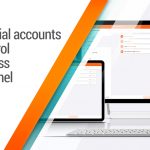Solution for serving commercial customers at fueling and charging stations
The new inCust Commercial Customers module provides new opportunities to automate the interactions between a fuel or charging station or chain, a company that purchases fuel or energy, and its employees that fuel or charge vehicles for commercial purposes.
What are the main advantages of this module? Fuel and charging stations and chains can sell fuel or energy to their commercial customers, which grant access to purchased fuel and energy to their employees. For a company to grant such access to an employee, only the employee’s email address or phone number is needed; it is no longer necessary to issue and distribute cards or coupons. It is possible to set up personal fuel or charging limits for each employee.
This module will be helpful for:
— companies whose employees fuel or recharge the cars at fuel and charging stations for commercial needs;
— fuel stations that want to make it easier for commercial customers to control fueling and charging of employees’ vehicles for business needs
With the help of the Commercial Customers module, a company or a fuel station can create and configure prepaid accounts, set the necessary limits, and provide access to company employees. Accounts allow obtaining fuel or energy at the station, keeping records, and making settlements between the station and the company.
Employees can fuel or charge a company vehicle within the established limits without the need for plastic cards, coupons, or tickets. An employee can be authenticated in many ways: through a mobile application, chatbot, using a QR-code, or by phone. These methods do not require any additional equipment.
A company uses the Commercial Customers module through the Control Panel, where a company manager sets all the necessary settings and fueling/charging limits for employees for a day or a month. In the future, accounting and access control occur automatically, and the company and the fuel station can easily control the amount of money spent and the amount of fuel or energy received.
Accounts can be debit or credit, with or without credit limits. What is the difference between them?
If you open a prepaid (debit) account, the company deposits a certain sum to the account, and when the money is used, further fueling will not be possible. Accordingly, you need to monitor the balance of the account and top up the account in time. As soon as the fuel station receives the company’s money, its manager must perform an account replenishment operation in the module.
A credit account with a limit works in the same way as a prepaid account, with the difference that provision of fuel or energy stops when the credit limit is reached.
Sometimes, a company does not want to spend time on carrying out financial transactions in inCust, but at the same time, it is necessary to set some restrictions. In this case, one can use a credit account without limits and set the limitation of expenses on the account for a month or a day. This feature will allow the company to stay within the allocated budget for the month without constant control over expenses and shipments. These limits are temporary and can be updated monthly.
Also, there exist goods accounts that work in the same way as money accounts, but the currency of such an account would be fuel or energy.
There exists a possibility of limiting the goods that one can purchase using an account, for example, to just fuel or just energy.
You create a commercial customer account once and enter the email address. A commercial customer enters a web portal or installs a mobile application on the phone (Android or iOS). From there, they can manage all employees’ settings: can create different positions, departments, employees and then assign different employees to different accounts. At the same time, each driver record can be configured to have separate limits for a day or a month. When setting up access to the account, one can place an additional PIN-code that will be asked for every time the driver fuels or charges the vehicle, regardless of whether the driver is authenticated or not. Drivers must enter PIN code no matter how fueling or charging is performed: through an assistant, a mobile application, or the Kiosk self-service panel. Also, you can specify the need or ability to enter odometer data when a car is fueled or charged. Another helpful function is scanning the QR code of the driver or vehicle — it enables identification of the vehicle or container that the driver fuels or charges.
Solutions based on the Commercial Customers module can be implemented by a company whose employees fuel or charge cars at the company’s expense or by a fuel or charging station. One implementation can be used for cooperation between one company and multiple fuel or charging stations or chains, and for cooperation of one fuel or charging chain with several companies.
How it works:
A logistics company cooperates with a fuel station, where employees of the logistics company refuel their corporate cars. The fuel station uses the module and creates a prepaid account for the logistics company, and the logistics company provides access to this account to its employees with personal limits. Employees who work in the city receive 200 liters of fuel per month, and those who work in the suburbs may get 400 liters of fuel per month. There also exist field managers who have a corporate car, but they do not use it for logistic purposes, so they receive 80 liters per month. At the same time, there exist drivers with a larger work area who drive more on average, so they are provided with more fuel per month (higher personal limits). The logistics company can add or remove employees or quickly change their limits.
Opportunities:
— checking the status of the account balance of each employee
— setting up individual restrictions (limits) for each employee
— instant access to company accounts
— account currency can be set to cash, goods, or private currency
— high level of data and account protection, compliant with legal requirements
Benefits:
- without plastic cards, coupons, and tickets, no need for additional equipment
- you can limit consumption by cost and not restrict operations to a specific set of goods or services
- the module works as a non-banking processing
- the module keeps records and controls access in automatic mode
For more information or advice on your business, please contact our specialists to suggest the best scenarios for using the new solution.






